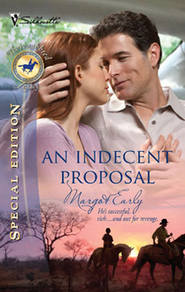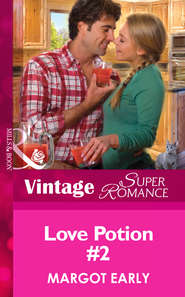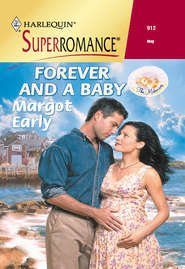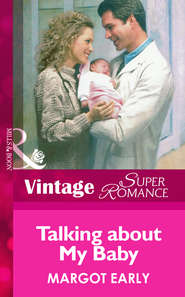По всем вопросам обращайтесь на: info@litportal.ru
(©) 2003-2024.
✖
The Things We Do For Love
Автор
Год написания книги
2018
Настройки чтения
Размер шрифта
Высота строк
Поля
“Excellent,” Graham said and gazed at her thoughtfully.
She wanted to swear.
But she couldn’t even breathe. Everything was swimming. Her head was swimming. And the glass was empty.
CHAPTER THREE
MARY ANNE STUMBLED into Graham, and he caught her.
She smelled earthy, sexy and natural. He studied the scattering of freckles across her nose, the paintbrush lashes, the full lips.
“Are you all right?” he asked.
Mary Anne sank onto a folding chair near the table. “Yes. Yes.”
“What happened?” Jonathan Hale joined them, gazing in concern at her.
Graham saw that earlier expression of horror wisp over her face again.
Mary Anne pushed herself out of the chair. “Nothing happened. I’m fine. Just a bit light-headed.”
“You’re a skinny thing,” Jonathan told her. “If you haven’t eaten, let’s get something in you.”
Graham felt irrational annoyance. “She’s not fading away.”
Her part of the glass had rolled away on the floor, and Jonathan picked it up. Graham handed the other part to him and focused on Mary Anne. She was a strong, healthy woman, vibrant as a Thoroughbred horse. This one was no fading lily or shrinking violet or whatever it was that was supposed to be prized in Southern women, and he didn’t believe she was light-headed, either. Probably just upset about Hale and Miss Workman. He looked at Jonathan, who was handing her a bottle of water.
“Thanks,” she said, taking it gratefully, uncapping it and then simply gazing at the bottle, looking shattered.
Jonathan put a hand on her back, and she gave him a look that seemed to say, What in the hell are you doing touching me?
In fact, Mary Anne was now wondering if she’d actually seen Graham Corbett drink the glass of wine she’d spiked with love potion. And if she had seen that, as she was sure she had, why was Jonathan Hale suddenly noticing her existence? She whispered, “I need to…I need to go home.”
“You can’t drive,” Jonathan said. “Just sit down, and let’s get you something to eat. You’ve been manhandled.”
“What?” Graham said in disbelief.
“You were fighting with her over my glass of wine,” Jonathan replied.
“Didn’t know it was yours, but I did not manhandle Mary Anne.”
Jonathan ignored Graham. “I’ll get myself another,” he told Mary Anne gently. “Thanks for trying.”
“Ah, Cameron.” Graham turned to Mary Anne’s cousin and dropped some keys into her hand. “My car’s just outside in the bank parking lot. Why don’t you take it and meet us at Mary Anne’s house? Can you drive a shift? I’ll drive Mary Anne in her car.”
“Maybe we should hear what Mary Anne wants,” Jonathan said, staring intently at Graham.
And they all, Graham and Jonathan and Cameron, looked at Mary Anne, as if to discover what she wanted.
She had no answer, except that Graham was paying attention to her in front of Cameron, who couldn’t help seeing the direction of the wind. And Jonathan was finally noticing her—but he was engaged! Everything was messed up and she wished she’d never gotten involved with the love potion that Graham Corbett had drunk.
She stared at the bottle of water and lifted it to her mouth, drinking deeply. Drinking in a clear, bright thought.
Love potions don’t work anyhow.
MARY ANNE MADE her excuses—to Jonathan and his fiancеe and to Cameron, who had secured the promise of a ride home from Graham—and was back at her grandmother’s house before ten, just as Nanna’s housekeeper and attendant, Lucille, was about to turn out Jacqueline Billingham’s bedroom light. Putting the debacle with the love-potion-that-wouldn’t-work-anyway behind her, Mary Anne hurried upstairs to kiss her grandmother good-night.
Nanna still sat up against a three-cornered pillow, wearing a nightgown made of some delicate cotton that reminded Mary Anne of the woman’s soft skin, grown thinner with age yet always seeming smooth and young. As usual, her grandmother smelled good, the scent of her night cream reminding her of roses. An Emilie Loring novel, marked with a lace bookmark, sat on the bedside table next to Nanna’s water glass and rosary beads. Mary Anne kissed her, and Nanna, her white hair loose for the night, asked, “Did you have a good time, dear?”
“Yes,” Mary Anne lied blithely.
“And did Cameron come back with you?”
“No,” Mary Anne said. “She has a ride home with someone else.” Mary Anne steered the conversation carefully away from mentioning any possibility of Cameron being, in any sense, with a man. Rationally, she knew this was unnecessary. However, some genetic reflex compelled her to participate in the family conspiracy of pretending the world was like one of Nanna’s romance novels. Even if sometimes it seemed to her that the pretense was subsuming her own reality.
Mary Anne had been a rebellious teenager, a Florida surfer girl. Every summer, her mother had sent her north to Logan, where Mary Anne, rather than succumbing to her grandmother’s influence, had spent every free moment with Cameron and the sort of boys their mothers hated, doing every forbidden thing one could arrange and usually escaping detection.
After that, Mary Anne had gone away to university in New York City, but she’d still returned to Logan each summer. Gradually, she had ceased to be a hellion, had entered therapy to help her accept everything she hated about her family and had become a decent contract bridge player, who could prepare a nice-looking dish for a church potluck and who sent thank-you notes on time.
It was now five years since Mary Anne had come to live with Nanna. The drawback was that Mary Anne could not bring a man to her grandmother’s house for the night or allow her grandmother to know that she would spend the night at a man’s house. Her grandmother did not want the world to be the kind of place where men and women who were not married to each other had sexual intercourse. So Mary Anne was due an Oscar for lifetime achievement, for pretending she would never consider sleeping with a man outside of marriage. The most difficult part of the pretense was that Mary Anne simply couldn’t lie to her grandmother.
So for five years she hadn’t spent the night with a man.
She’d had rare, brief sexual encounters with men at their homes and then said she needed to get home, citing newspaper deadlines. Because the world could not wait for her feature on the Logan Garden Tour.
Cameron had once asked her, “What’s Nanna going to do if you ever want to move in with someone? A man, I mean.”
“There’s no one I want to move in with,” Mary Anne had replied. “Anyhow, the same applies to you.”
“No, it doesn’t. Nanna knows I’ve lived with men.”
This was true. Nanna had simply said, “Oh, my,” and, “Darling, could you find this color of embroidery floss in my bag? My eyes are having trouble picking it out.”
Mary Anne wasn’t sure what she thought would happen if she let Nanna down by doing what Cameron had done with so little consequence. Nonetheless, she couldn’t bring herself to disillusion the older woman.
Well, it wasn’t going to be a problem anytime soon, Mary Anne reflected later that night as she curled up in her four-poster missing Flossy.
The wrong person had drunk the love-potion-that-would-not-work.
GRAHAM CORBETT LAY on a comfortable, if ugly couch in the master bedroom of his home, his feet on a tile-topped Craftsman encyclopedia table that had been a gift from his mother. The graceful two-story white house, with its wraparound porches and its upper balconies, was too big for one person. Nonetheless, he liked it.
Like Mary Anne Drew, he lived on the exclusive island of old homes known as Middleburg. Reached by a bridge that crossed the river, Middleburg was a charming spot. The hills rose behind his home, sometimes bringing nature closer than he wanted. For instance, there’d been a time last summer when he’d found an eight-foot-long black snake curled up under the swing on his back porch. Graham was not a snake lover and he really didn’t give a damn about the inroads they made on the rodent population. He’d headed to the garden shed, intending to grab a shovel and cut off the thing’s head, and there he had found a copperhead curled up in his watering can.
He’d gone back to the house and poured himself a whiskey. When he’d returned to the porch, the black snake was gone. He’d knocked back the glass of whiskey and considered what to do about the copperhead in the watering can. First, he must cover the opening in the top of the can so that the snake would not escape. Then, he needed to kill or dispose of the snake. But how?
He was on his second whiskey when his neighbor David Cureux popped over to invite Graham to join a committee to discuss health plans for city workers. Cureux, a former obstetrician, was a council member and had become a friend.
Graham told David about the copperhead. David went home for his shotgun, came back and killed the copperhead. To Graham’s astonishment, however, David first dumped the copperhead out of the watering can—explaining that he didn’t want to get holes in the can.











